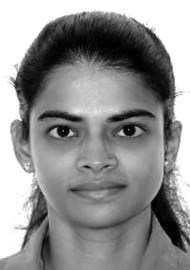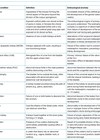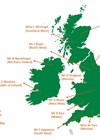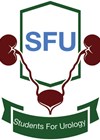Urology is a highly technical, rapidly evolving specialty and yet under-represented. At a time of significant innovation driven by advances in minimally invasive surgery, endourology and robotics, it is more important than ever to ensure a strong pipeline of motivated and well-informed future urologists.
As the current Association of Surgeons in Training (ASiT) representative for the British Association of Urological Surgeons Section of Trainees (BSoT), I have had the privilege of contributing to the early career development of aspiring surgeons with an interest in urology. ASiT provides a national platform for pan-specialty engagement, and its conferences and educational programmes offer valuable exposure to smaller, often niche specialties such as urology. In this role, I have focused on bridging the gap between core surgical training and urology-specific career support, helping to raise the profile of the specialty among early-stage trainees.

I have been fortunate to contribute to ASiT’s ‘Preparing for a Career in Surgery (P4CS)’ and ‘Preparing for Core Surgical Training (P4CST)’ courses. These national events are designed to guide aspiring surgeons through key early career decisions. Through my talks, I have aimed to showcase the breadth and depth of urology, discussing common presentations, essential procedural skills, and the diversity of clinical practice. Importantly, I’ve also shared realistic insights into the day-to-day life of a urologist, such as typical weekly work patterns, on-call responsibilities, and the balance between outpatient care and operative work.
These sessions have proven to be an effective platform for shifting perceptions and sparking interest among trainees who may not have previously considered urology. Feedback has consistently highlighted how valuable these insights are, particularly for those preparing to apply for core surgical training.
Another key initiative in promoting awareness of the specialty has been the organisation of the ‘ASiT x BSoT Core Urology Skills Course’, delivered as part of the ASiT Annual Conference pre-conference programme. This hands-on course offers early-stage trainees practical exposure to core urological procedures, including wet lab simulation training in scrotal exploration, flexible cystoscopy, difficult catheterisation, and suprapubic catheter insertion. These are foundational skills for an ST3-level urology trainee but often may not be encountered during core training. By building confidence and demystifying the specialty, the course serves as an invaluable introduction to urology.
The ASiT Annual Conference provides a valuable opportunity to engage with urology aspirants through face-to-face interactions at the Specialty Village, where attendees can ask questions and gain insights into the specialty. Additionally, the Specialty Battle offers a dynamic platform to showcase urology alongside other surgical fields, highlighting its unique appeal in an interactive and competitive setting. One of the key highlights of the conference is the prestigious BSoT Prize, awarded for the best urology oral presentations, which recognises and encourages excellence in academic and clinical research within the field.
Looking ahead, I believe there is significant potential for further collaboration between ASiT, BSoT, and local deaneries to continue fostering interest in urology among early career trainees. The ASiT Mentorship Programme is a particularly valuable tool, linking aspiring urologists with experienced mentors to support their career progression. Additionally, the BAUS website remains an excellent resource, offering a wide range of guidance and opportunities for those exploring a future in the specialty.
The collaboration between BSoT and ASiT has already made a meaningful impact on early engagement in urology, and I am enthusiastic about continuing this forward. I would like to also take this opportunity to encourage colleagues and consultants to actively support and contribute to these initiatives, helping to shape the future of urology and inspire the next generation of surgical trainees.
Finally, to all the budding urologists – “Think surgery. Think innovation. Think urology – a specialty built on skill, diversity, and a sense of belonging.”









